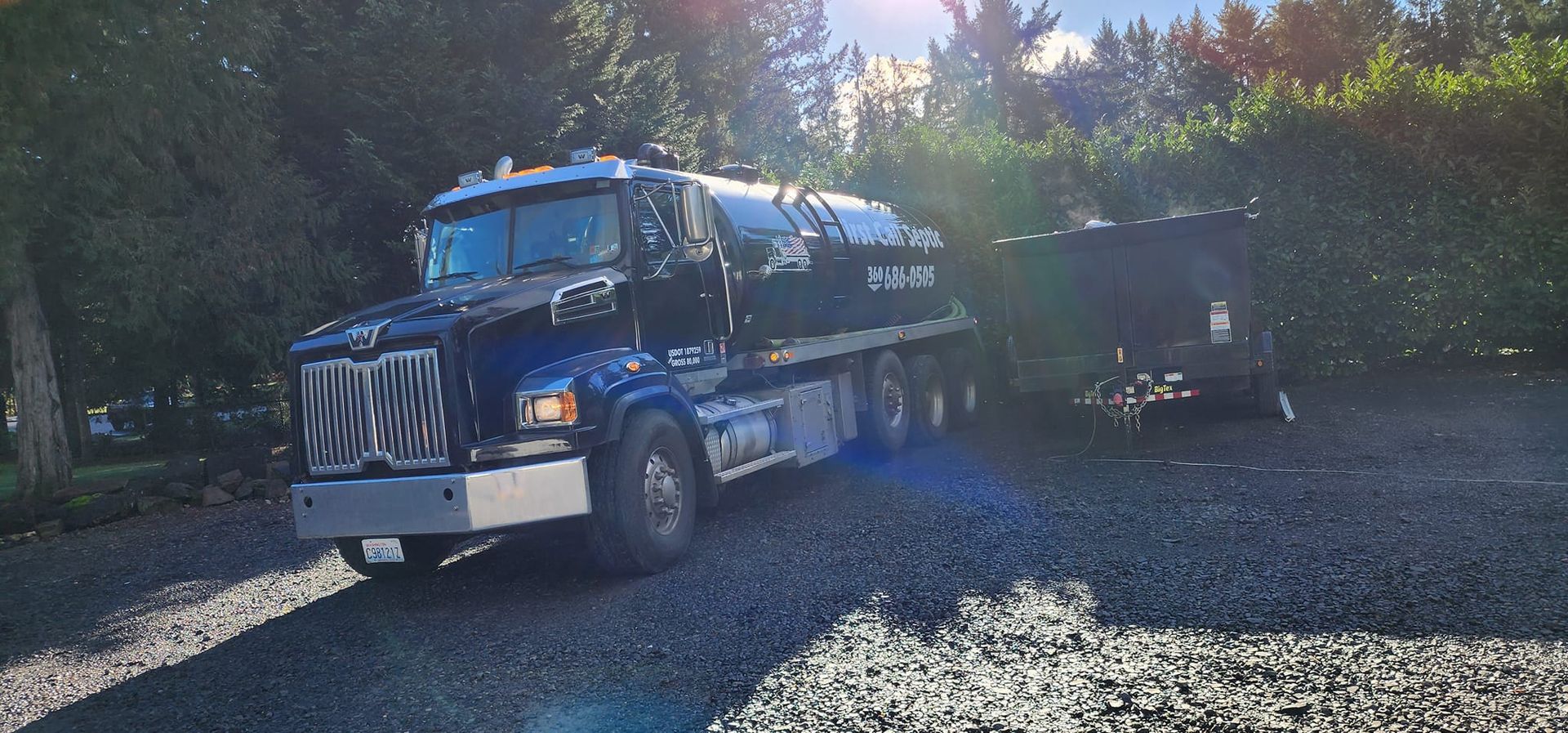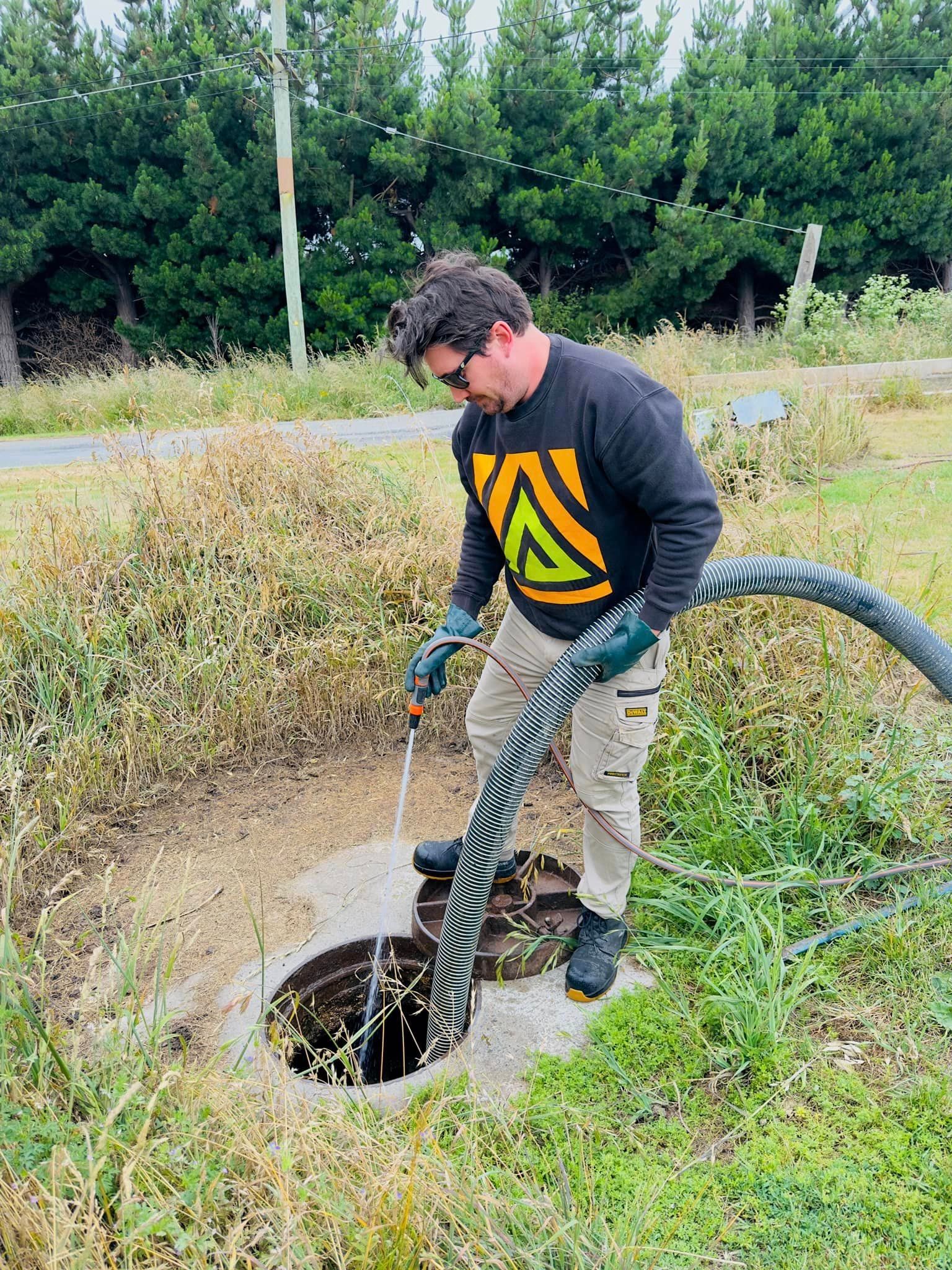Conventional Septic
Conventional Septic Systems
Managing wastewater is a crucial aspect of maintaining residential and commercial properties. At
EWS Septic, we understand the importance of a reliable septic system in ensuring proper wastewater treatment. Our team of experts specializes in conventional septic systems. We provide efficient and effective solutions for your property's needs.
What is a Conventional Septic System?
A conventional septic system is a time-tested and widely used method for treating and disposing of wastewater. It consists of three main components: the septic tank, drainfield, and soil absorption system. Conventional septic systems rely on natural processes to treat wastewater. Aerobic and chamber systems, unlike conventional septic systems, use other types of processes.
How a Conventional Septic System Works?
Homeowners can make informed decisions about their wastewater management by understanding conventional septic systems. Here's a step-by-step breakdown of how it operates:
- Wastewater enters the septic tank through the main inlet pipe.
- Inside the tank, solid waste settles at the bottom, forming a layer of sludge.
- Bacteria and enzymes present in the tank break down the organic matter, converting it into liquid and gases.
- The liquid portion, or effluent, flows out of the tank and into the drainfield through the outlet pipe.
- In the drainfield, the effluent is distributed evenly across a network of perforated pipes. The pipes are buried in gravel-filled trenches.
- The effluent slowly percolates through the gravel. It then enters the surrounding soil, where further treatment occurs.
- The soil acts as a natural filter, removing harmful pathogens and contaminants from the wastewater.
- Finally, the treated wastewater is safely absorbed into the groundwater. It may also evaporate back into the atmosphere.
Conventional Septic System Installation
Installing a conventional septic system requires careful planning and adherence to local regulations. Our experienced team at EWS Septic follows a systematic approach to ensure a successful installation:
Quality Assurance
We conduct thorough inspections and tests to ensure that the system is properly installed. We also test to ensure it is functioning optimally.
Conventional Septic System Cost
The cost of installing and maintaining a conventional septic system can vary depending on several factors. These factors include the size of the property, soil conditions, local regulations, and any additional features required. It's challenging to provide an exact cost without evaluating your specific needs.
We can also discuss any potential additional expenses. These may arise during the installation or maintenance process.
Conventional Pump Septic System
In some cases, a conventional septic system may require a pump to ensure proper wastewater flow. A pump septic system is designed to overcome challenges. For example, it can deal with uphill terrain or long distances between the septic tank and drainfield.
Our experts at EWS Septic can assess your property and determine if a pump system is necessary. We will explain the benefits and functionality of a pump septic system within the context of a conventional septic system.
Conventional Septic System Maintenance
Regular maintenance is essential to keep your conventional septic system in optimal condition. At EWS Septic, we recommend the following maintenance guidelines:
Professional Maintenance
Engage a professional septic system maintenance provider, like EWS Septic, for comprehensive inspections and maintenance.
Aerobic Septic System vs Conventional
Conventional septic systems are widely used. It's essential to also consider alternative options, like aerobic septic systems. Here's a comparison to help you understand the features, benefits, and limitations of each system:
Conventional Septic System
- Relies on natural processes for wastewater treatment.
- Suitable for most residential and commercial properties.
- Requires less maintenance compared to aerobic systems.
- Generally more cost-effective to install and maintain.
Aerobic Septic System
- Enhances wastewater treatment with added oxygen & mechanics.
- Perfect for properties with tough soil or high water tables.
- Requires regular maintenance and electricity to operate.
- Usually pricier to install and maintain than standard systems.
At EWS Septic, we can help you determine the most suitable system based on your specific needs and property requirements.
Chamber Septic System vs Conventional
Another alternative to consider is the chamber septic system. Here's a comparison between chamber septic systems and conventional septic systems:
Conventional Septic System
- Utilizes a septic tank and drainfield for wastewater treatment.
- Suitable for most properties with adequate soil conditions.
- Provides reliable and efficient wastewater treatment.
- Requires regular maintenance and occasional pumping.
Chamber Septic System
- Utilizes pre-fabricated plastic chambers for wastewater treatment.
- Ideal for properties with limited space or challenging soil conditions.
- Offers flexibility in design and installation.
- Requires regular maintenance and occasional pumping.
At EWS Septic, our team can assess your property. We'll help you determine the most suitable system based on your specific needs and site conditions.
Schedule Now
Contact us for prompt assistance with your conventional septic system
Opt for EWS Septic for outstanding conventional septic systems. Utilize our expertise, professionalism, and comprehensive solutions for effective resolution of your septic issues.
Contact us today to schedule prompt and efficient service or gather information about our dedicated offerings. We are committed to addressing your septic concerns with excellence and reliability.
All Rights Reserved | EWS Septic


